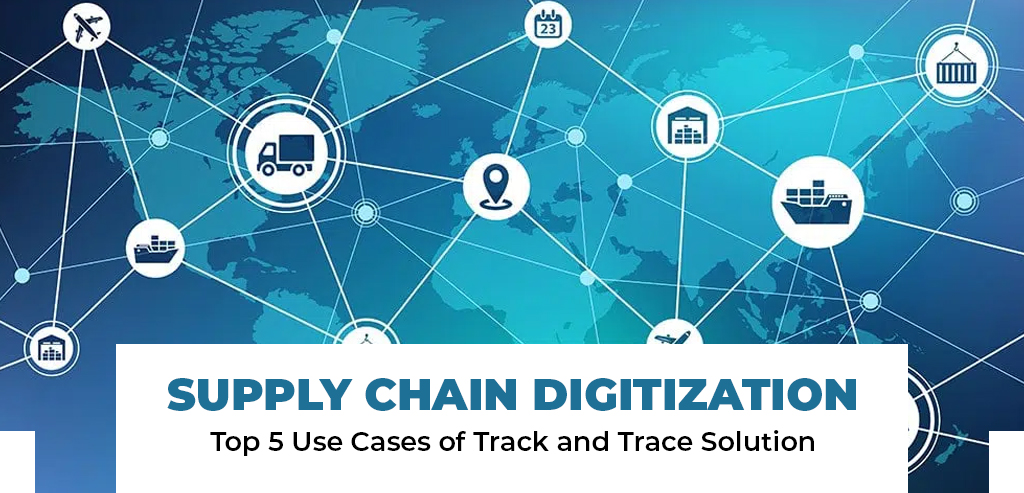Today’s supply chains are intricate, multi-stakeholder networks that span the world. The difficulty of locating and confirming the sources of products and tracking their current location as the supply chain stretches. Organizational supply chains that heavily relied on their tracking and traceability capabilities for credibility in the past have been saved by ERP and other TnT systems.
Why are these venerable systems now failing to meet standards?
This is because none of the currently available track and trace systems are infallible, and hence, none of them provides complete data. Supply chain specialists recognized Blockchain’s immutability ability as a significant benefit.
Advantages of Digitization of Supply Chain
- Prevents Counterfeiting
Companies implement blockchain provenance identification through smart tags, which, when attached to a product, will identify its manufacturing place, track its position, and assign other significant information to it at each stage in the supply chain. This eliminates counterfeiting and establishes originality.
- Accelerates the Process
Blockchain technology safeguards the information as well as the integrity of the transaction. As a result, there are fewer instances of errors and conflicts. In addition, the process is sped up due to the decreased requirement for product recalls and re-filling orders that were missed. Eliminating the need for intermediaries and other third parties is one of the additional benefits of utilizing smart contracts. For instance, using Blockchain in the supply chain can eliminate the requirement for using banks or clearing houses to make payments.
- System Can’t Be Manipulated
Blockchain ensures the accuracy of stored data and guards against any possibility of corruption.
The immutability of data ensures its correctness and validity through the supply chain. It also eliminates the possibility of data loss. In addition, it helps prevent unethical business activities and manipulation on the company’s end by detecting any changes to the data as soon as they occur. The regulatory compliance and auditing process may now be carried out in a manner that is both simpler and more effective as a result.
- Less Labor Induced Process
Consider the logistics sector as an example: many of the procedures involved in the supply chain, particularly those located in the lower tiers of the supply chain, are time-consuming and nearly exclusively dependent on paper. The implementation of blockchain technology in the supply chain has the potential to replace these manual processes with an end-to-end digital process that enables increased levels of visibility and transparency.
- Higher Transparency
Consumers are increasing demands on businesses to provide greater transparency on the origin of their goods and the workings of the companies that manufacture them. Because of this, there is a renewed push to establish an ethical supply chain. Companies involved in supply chains benefit in two ways from blockchain technology: The first issue is one of origin. Blockchain technology enables experts in the supply chain to trace the origin of each item they use and then relay this information to the end user. Second, you may utilize Blockchain to increase the transparency of your supply chain, which will allow customers to understand better how their product was created and distributed.
- Limiting Wastage And Losses of Resource
Track & Trace technology can result in significant cost savings due to improvements in efficiency and reductions in stock loss and waste. Paper-based procedures and materials are no longer necessary, thanks to eliminating the requirement for distributed networks that share resources and transactions digitally. Therefore, the costs of materials can be reduced by going paperless. Still, there is also a reduction in the costs of ancillary charges, such as those connected to the storage and the personnel necessary to process and manage all of those physical papers.
CONCLUSION
When it comes to the supply chain, whether or not a company can successfully implement a track & trace technology depends on the performance and scalability that their chosen solution can provide. With the growing maturity of underlying technologies, supply chain development is likely to investigate ways to incorporate blockchain technology into operations where it makes the most sense. Blockchain platforms that can infuse additional trust and efficiency into a wide range of transactions are necessary for transforming the supply chain industry.
Connect with LetsVerify if you have any queries.

